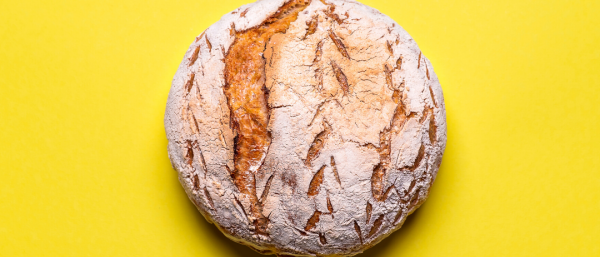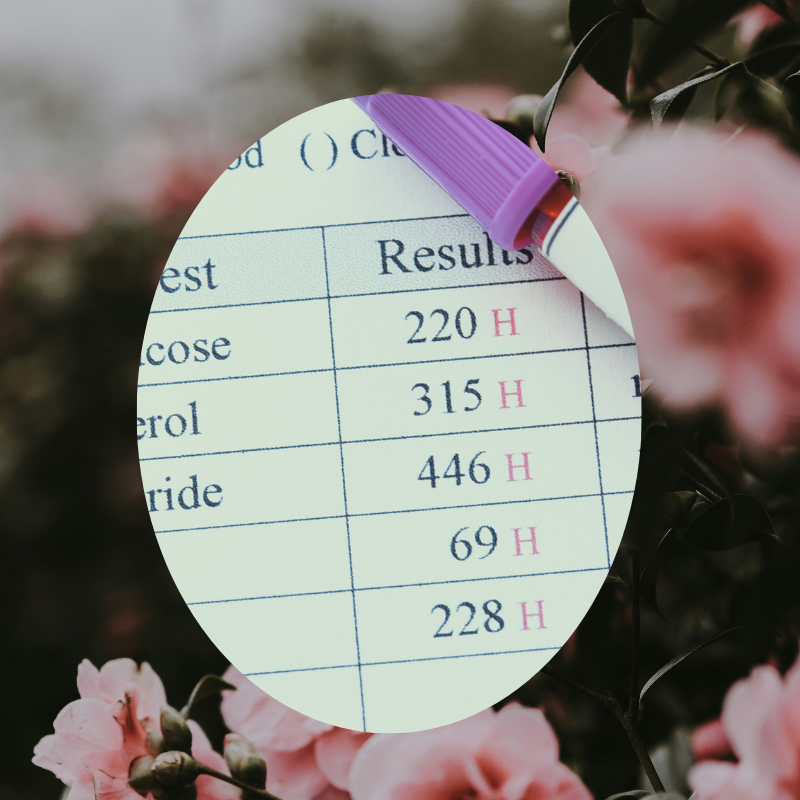Everything you need to know about gluten
Gluten sensitivity is such a hot topic the moment. I often get people asking me ‘should I cut out gluten?‘
What they want is a simple ‘yes’ or ‘no’.
What they need is a greater understanding of the bigger picture.
Only by understanding how food works within our unique body, can we really discover what we need to keep in our diets, and what we should cut out.
So, unfortunately this post isn’t a prescription. Instead it’s a bare-essentials lowdown on gluten which explains what it is and why it may, or may not, be the culprit making you feel uncomfortable.
Hopefully by understanding gluten you can begin to make an informed choice about how much you’re eating and if it’s doing you any good.
What is gluten?
Did you know gluten is actually the Latin word for ‘glue’? That’s because it’s the magic ingredient that gives the chewy (and delicious) strength and elasticity to bread.
However, rather than being just one molecule, it’s actually a group of proteins that exist within grains like wheat.
Most of the proteins in the gluten group are called gliadin and glutenin.
You may already know protein is a macronutrient (like fat and carbohydrates) made-up of amino acids that are essential for life.
However, the proteins within gluten, particularly gliadin, can be very difficult for some people to digest and break down into smaller, more absorbable peptides (smaller chains of amino acids).
This can be where the trouble starts.
Understanding coeliac disease
Coeliac disease is an autoimmune condition stimulated by gluten. It affects around 1 in 100 people and occurs when the body turns on gluten, attacking it like a virus.
After eating gluten, a coeliac sufferer is likely to experience severe abdominal pain, diarrhoea or constipation, gas and bloating.
If they are eating gluten on a regular basis and the body can no longer absorb nutrients often people will get very thin, anaemic, depressed, fatigued and deficiencies in vitamins and minerals.
Therefore, to avoid the condition coeliac sufferers should not have gluten in any form or any amount.
If you suspect you are suffering from coeliac symptoms and haven’t been diagnosed it’s important you go and see your Doctor. If you are a coeliac the answer to should I cut out gluten will definitely be yes!
Understanding gluten sensitivity: The trouble with wheat and modern bread
It’s important to understand gluten sensitivity as a multi-faceted issue as people tend not to eat pure gluten, they eat wheat. Therefore, it can be unclear what is the trigger when people feel uncomfortable after a sandwich.
Wheat itself is problematic. It’s sprayed with pesticides, refined so much it loses its fibre and mineral content and stored for long periods of time, often exposed to moulds and fungi and then made into bread.
The bread baking processtakes this to another level. Modern baking methods now mean a loaf of bread can be now be made, risen, baked and served in under 3.5 hours (google Chorleywood Bread Process). This bread contains enzymes, hydrogenated or fractionated fats, emulsifiers, preservatives and bleach.
The enzymes pose a particular problem because they are classified as processing aids and therefore do not have to be listed under ingredients. One enzyme transglutaminase speeds up the mechanisms in coeliac disease.Another enzyme fungal alpha-amylase is a known allergen that can cause ‘baker’s asthma’,detected in bread crust.
The success of sourdough is because it only has four ingredients- flour, water, some salt and a sourdough starter culture. It ferments over 24 hours to create a bread that is easier to digest and absorb by many people.
Therefore, many people may not be gluten sensitive and instead react badly to wheat or badly made bread. Therefore, the answer to should I cut out gluten? might be no! You might just need to cut out processed bread!
Understanding non-coeliac gluten sensitivity
However, there are also people that suffer from non-coeliac gluten sensitivity whereby their body also has an immune reaction the gluten protein, but it manifests differently to coeliac disease.
The tests may be negative for coeliac disease, yet the person still feels better when not eating gluten.
Why?
This is where it gets interesting. Gluten sensitivity is not always a disease of the small intestine and can manifest anywhere in the body.
The key difference is that the body does not produce the antibodies to gluten that coeliac disease sufferers do. However, they still have an immune reaction to gluten.
Therefore, the answer to should I cut out gluten if you have a sensitivity but are not coeliac would be yes….although there may be an underlying cause for this sensitivity that might need to be addressed…
Fact: gluten overload is a part of modern life
Gluten is so useful that you can find it not just in food but on stamps, makeup, supplements and chewing gum.
The abundance of gluten in our daily lives might be a reason why gluten sensitivity has increased so much.
Many people will have cereal for breakfast, sandwiches for lunch and pasta for dinner and many processed foods will contain gluten without people realising it.
For example; potatoes are gluten-free but if you like your chips with vinegar then you have just added a source of gluten, same for soy sauce in your stir-fries.
It’s everywhere! This daily gluten fest could be the reason for sensitivities developing in people without coeliac disease.
So should I cut out gluten?
Well we know that someone with coeliac disease definitely should! However, gluten sensitivity needs to be investigated further. What are people actually reacting to? Due to the amount of gluten found in everyday lives then it is a good idea to be more conscious of what you are eating.
The easiest way to do this is to eat fresh, unprocessed foods. Only buy food with one ingredient in! This way we reduce exposure to the potential toxicities of not just gluten but other ingredients that can confuse our bodies.
Going gluten free does not always solve this as the alternatives can become just as bad as gluten if you start reading the labels of many gluten-free substitutes.
Why not experiment at cutting out gluten for 3 months and see if you feel better. Keep a diary of mood and body changes to track how you feel. Then you can slowly add in lower gluten containing foods such as barley, spelt and rye and track how you feel with them. If they irritate you then take them out! You might find that you can tolerate these though and that opens up a world of possibilities of cooking with delicious grains! Experiment with making your own sourdough instead of shop bought bread.
As always it’s better to stick to unprocessed, whole foods whether embracing gluten or avoiding it but it is good to know that gluten-free brownies can be just as delicious than the ones with flour in them!
IF YOU LIKED THIS POST you might love these
What is Family Tree Therapy?
26 May 2023
Unlocking the Secrets of Illness with Recall Healing
26 April 2023
Meet Alexandra
13 April 2023
Functional Diagnostic Testing
22 September 2022






